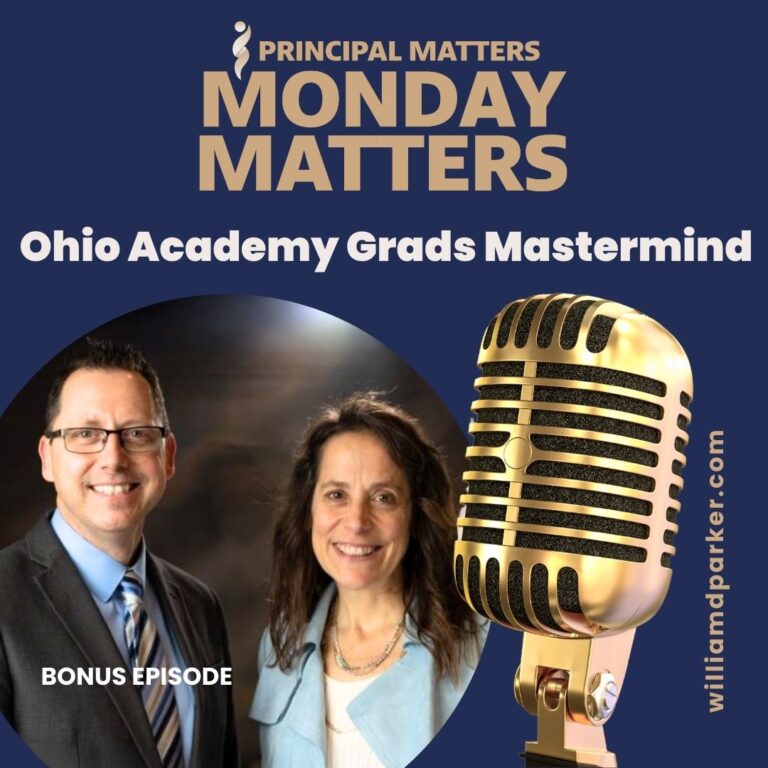Podcast: Play in new window | Download
The other morning, on my drive to school with my daughter, I was listening to a story on NPR called The Scarcity Trap: Why We Keep Digging When We’re Stuck in a Hole by Shankar Vedantam.

Researchers have determined that when people find themselves consumed with trying to simply survive, they often instinctively operate with tunnel vision. Sometimes they have poorer judgment. They tend to have a harder time thinking long-term. The urgent often overwhelms other important priorities.
In fact, one study looked at farmers in India who are paid only once a year after harvest. When their behaviors were observed before and after, their ability to make rationale, wise choices dramatically changed when their scarcity was replaced with abundance. Vedantam reports that other research has found that IQ scores actually lower when people test while experiencing scarcity than when experiencing stability.
Scarcity comes in a lot of different forms. For some, it is lack of money or resources. For others it may be lack of time or support. Maybe some people experience emotional scarcity. This doesn’t automatically mean that those who struggle with poverty or other scarcity issues are always less prone to good decisions. But it does shed light on the challenges that scarcity creates for our brains and mindsets.
As school leaders we can see its effects in our own practices or the learning of our students. In my own practice, I can think of ways I’ve seen these forces play out. Even as an experienced administrator, I can still become so overwhelmed with present or urgent requests that I have a difficult time looking beyond the moment and remembering important long-term priorities.
A Quick Look at One Morning
Let me give a quick example from one morning last week when I found myself pinched for time:
- 8:00 AM–I met with a student who needed follow-up from a bus incident. I had already contacted the parent; we resolved the issue, and I sent him to class.
- 8:10 AM-8:50 AM–I visited a classroom and completed a formal teacher observation.
- 8:55 AM–I returned to my office and was reminded of a parent meeting I needed to attend. I was not leading the meeting, but I needed to share some input before moving on to another observation. In the meantime, I signed purchase orders, finished thank you cards, checked email, and talked to two teachers who stopped by.
- 9:30 AM–I stepped into the teacher/parent meeting and then came back to my office to grab notes for my next observation.
- 9:40 AM–I was told about a situation where a teacher needed assistance. I communicated with the teacher and we coordinated a game plan.
- 9:50 AM–I stepped back in the office and saw an email from another teacher with a discipline referral needing admin assistance. My admin team members were not available, so I went to the classroom. This situation required escorting a student to my office for a discipline meeting. I contacted a guardian and completed the necessary paperwork.
- 10:10 AM–I stepped into my next teacher observation late.
- 10:30–While I was writing down notes, I received a text that the guardian in the student discipline had arrived at my office. I ended my observation early and made it to my office. After meeting with the parent, I finished entering more notes in our student information system.
- 10:45 AM–The track team was competing, and I wanted to attend to watch my daughter run, so I grabbed my bag and headed out the door.
When I arrived at the track meet, I was happy to see my daughter run her race. Later, however, when I checked my iPhone, I saw an email from the last teacher I had observed. She thanked me for the visit but told me I had accidentally shared notes with her from the first teacher I had observed. Of course, I can’t divulge confidentiality by telling you how some of the discussions, meetings, or conversations above required different responses. You can probably guess, however, that the discipline situations I helped manage didn’t allow much time for reflective outcomes either.
It should not have surprised me that with a scarcity of time (and the accompanying pressures) I had lost attention to detail and barely skimmed the surface in so many of the tasks I had taken on that morning.
This is small snapshot of series of events in just one half of a school day. But as school leaders we experience stress and pressure in many different ways. Anytime we feel the pinch of scarcity (whether that is with our time, competing interests or lack of resources), we will find ourselves challenged to make the best decisions.
The Implications of Scarcity on our Practice
How do we respond to the scarcity of time when it comes to decision making? One way is to recognize when it’s happening. By recognizing that you are under pressure, you at least have the advantage of being on the lookout for mistakes that can be made.
If you want other feedback on helpful strategies for handling stressful times, check out one of my previous posts Maintaining Sanity During Stressful Times where I discuss other suggestions as well as a case study from my own practice. There are many ways to keep from developing tunnel vision, but in today’s post, however, I want to focus on the fact that scarcity in any form can create unforeseen challenges.
If school leaders are affected by challenges to our time or resources, then what are the implications for our students or teachers?
I remember a story from a former colleague who was an assistant principal. She worked with a teacher who was having daily confrontations with a middle school boy named Johnny. Every week, she would visit the office on her planning period to complain about Johnny’s behavior. His inability to sit still, stay focused, or not distract others was driving her crazy. It was going to be a long year, and she really wanted him in a different class.
One day when she came to the office, my assistant principal friend asked her if she would go for a quick drive with her. She wanted to show her something nearby. As they drove away from the school, they made small talk until she pulled into a rundown neighborhood and parked in front of a home that was so neglected it looked vacant.
“What’s this?” asked the teacher.
“This is where Johnny lives,” said the assistant principal.
They sat in silence for a few moments when suddenly, the teacher began to cry.
“I had no idea,” was all she could find the words to say.
From that day, Johnny’s teacher had a completely different perspective. She still expected him to follow rules and learn, but she also had empathy for him. By the end of the year, he was her favorite student. And I’m guessing he’s never forgotten her either.
Let’s Wrap This Up
When I finished listening to the story by Shankar Vedantam during my commute, I turned to my teenage daughter and asked her what she thought.
“Wow,” she said. “No wonder people in poverty struggle so much. Sometimes they can’t even think clearly enough to make the right choices.”
We talked for a while about how we may be able to empathize with others who struggle with scarcity. And we talked about how important it is to recognize when we are facing moments of scarcity in our own lives.
It should come as no surprise that scarcity creates amazing challenges in thinking, decision-making and performance. But it is also a good reminder that as educators, we have a responsibility to be aware. We need to be aware of our own mindsets. We need to be aware of the mindsets of our teachers and staff. And we need to be aware of the mindsets of our students.
This kind of mindset shouldn’t lower our standards or expectations of watching others grown. But it may help us be better able to assist and support in minimizing the implications of scarcity. At the least, we may simply be able to monitor our own responses so that we show patience to others who are trying to learn and grow in the midst of scarcity.
Now It’s Your Turn
None of us is really exempt from the effects of scarcity. Sometimes these hidden forces can affect our own leadership. At other times, our teachers or students may be facing situations that create greater levels of pressure than we can see on the surface.
With that in mind, what are ways you can guide your own mindset so that you can better provide support, encouragement and direction for others—especially during difficult times? How can you take time today to self-reflect on your own frame of mind? Who around you who may need additional support or direction during a time when they’re experiencing scarcity?
As school leaders and educators, we may not be able to find solutions to every challenge that comes with scarcity, but we may at least benefit from being more understanding of others and ourselves.
Principal Matters Podcast
Check out audio versions of my posts at iTunes. Rate PMP at iTunes; when you do, it makes it more visible to others!
Sign-Up For Free Updates and Ebook
When you enter your email address below, you will automatically receive my newest posts and a free Ebook, 8 Hats: Essential Roles for School Leaders. Let’s keep learning together!
Subscribe for free weekly updates and receive free e-book!
(function($) {window.fnames = new Array(); window.ftypes = new Array();fnames[0]=’EMAIL’;ftypes[0]=’email’;fnames[1]=’FNAME’;ftypes[1]=’text’;fnames[2]=’LNAME’;ftypes[2]=’text’;}(jQuery));var $mcj = jQuery.noConflict(true);
Principal Matters–The Book!

School leaders are very busy, so each of the twenty-four chapters is designed as a quick-read and followed with take-action questions for follow-up or reflection. If you want practical ideas on understanding your purpose, managing school teams, dealing with challenges, and leading with courage, action, motivation, and teamwork, go HERE to pick up a copy for you or your team.


